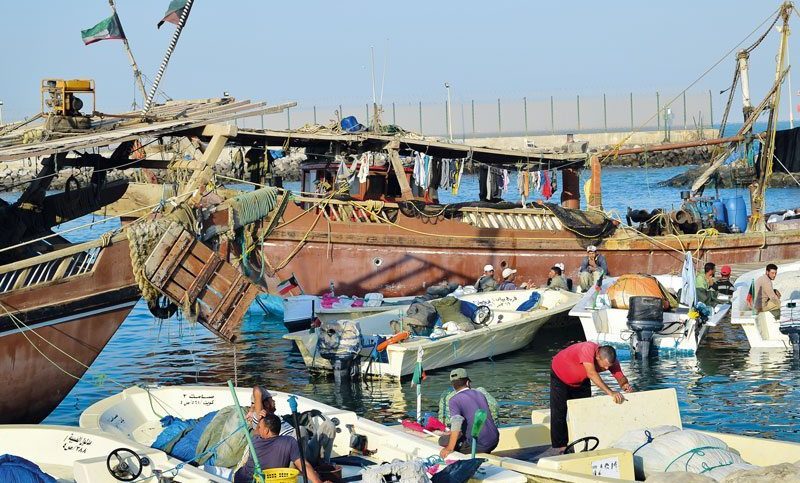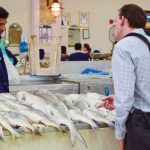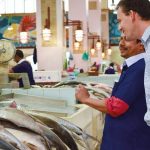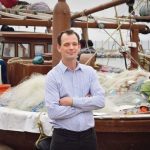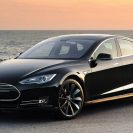Have you ever considered the effect that your regular indulgence of chocolate has on the oceans? I hadn’t given this much thought either, prior to my conversation with Dr. Will Le Quesne (pronounced: le Kane), the Senior Marine Scientist, from the UK, on the CEFAS (the Centre for the Environment, Fisheries and Aquaculture Science, a UK government agency) and EPA (Environment Protection Agency, of Kuwait) joint project, established to develop a long term national marine environment monitoring and management program for Kuwait.
CEFAS has been with Kuwait for over 15 years, a partnership which is facilitated through the British Embassy in Kuwait and is the result of the longstanding friendship between the Kuwaiti and UK governments.
Prior to joining the CEFAS-EPA project in 2014, Dr. Le Quesne spent 15 years as a marine environmental scientist. He has advised the UK government, European parliament and the International Council for the Exploration of the Seas, amongst other bodies, working on issues relating to biodiversity management, conservation and understanding how to interpret scientific understanding to provide practical advice to policy makers and managers. He told me:
“CEFAS and the EPA have worked together on projects since 2001. One of their joint projects was an investigation into some of the impacts of the Mishref Pumping Station incident. I was involved in talking with the EPA when we were developing the project and as a result I was appointed as lead scientist on the CEFAS-EPA joint project.”
Will explained that the marine environment provides a lot of social and economic benefits to all of society. “If we look at a map of Kuwait we can see that, as the economy boomed following the discovery of oil, traditional economies became less essential, but nonetheless, the strong ties to the ocean, which are part of Kuwait’s cultural identity, remained. As personal wealth and the population grew, so the city expanded along the coastline. Primarily for economic reasons, but with time it has been about quality of life and leisure.”
Probably the first thing that comes to mind when we talk about the maritime economy is the fishing industry, but the sea also:
- reduces the impact of climate change
- absorbs over half the CO2 released by mankind
- recycles essential waste products – but only to a point
- provides fish for food
- is used for shipping
- offers tourism and recreation, which greatly increases people’s quality of life
- provides tidal and wave energy
- connects us to cultural links to the past
All of these benefits depend on the health of the marine environment, yet the sea is becoming busier and the ability of the marine environment to provide all of these services and benefits is being stretched, possibly to breaking point.
Every aspect of modern life impacts on the marine environment, but as Will observes:
“Whilst it’s unrealistic to expect that we suddenly stop living the way we do today, we manage our impact on the environment through our consumer choices. When purchasing fish products, for example, we can look for products that bear the labels of organizations such as the Marine Stewardship Council 1. (https://msc.org).”
We can also look at how we can manage the ongoing development of society, from our neighborhood to our country, from our region to the entire global village, in a sustainable manner.
“It comes down to the role of organizations such as the EPA and CEFAS, and to the concept of sustainable development”, says Will. “We all understand that there are huge benefits to development, but that there also huge benefits provided by the environment, so we ask how can we guide the development process so that it is sustainable and has minimal impact on the environment. An organization such as the EPA looks at the balances and trade offs, as there is no one perfect solution in terms of how you can maximise environmental benefit, nor how you can maximize the benefit from development. The role of marine scientists such as myself, and of organization like the EPA, is to work out how to structure and manage these trade offs for the benefit of society as a whole, in terms of what is important in the environment, what is the benefit of protecting it and how to protect it effectively. For example, if we, as consumers, chose to eat locally and sustainably caught fish, this alone would have an impact on fish stocks, ocean-going vessel traffic on the seas, and breeding grounds.”
While it’s easy to put monetary value on fisheries and the tourist, it’s less easy to value sectors like climate regulation and coastal protection. According to Will, a recent study has estimated that the total benefit of the marine environment to the global economy is $ 2.4 trillion (KD72 billion) per year!
In terms of the marine environment, Kuwait’s Environmental Protection Law, Law 42 of 2014, provides the EPA with a mandate and a requirement to monitor the state of the environment and to report on the state of the marine environment.
“One of the challenges the government and the EPA face is that it is quite tricky to monitor and manage the implementation of policy, due to the number of different sectors that impact the marine environment: including the fishing industry, leisure, waste, coastal development, etc. One of our challenges is bringing all these bodies together; part of our role is to provide the best possible scientific information to enable Kuwait’s policy makers to influence not just local, but regional environmental policy and legislation.”
“I think the EPA is doing work in this field that could be a good template for the wider region. Kuwait’s marine environment is a small part of the Gulf, and pollutants and marine life travel across borders, so to gain the most benefit from any a regionally coordinated management program, such as the Regional Organization for the Protection of the Marine Environment (ROPME, which is the UN Environment Program’s Regional Seas Program) can provide a forum to coordinate regional management.”
So, back to that piece of imported chocolate and its effect on the world’s marine environment. Well, in order for you to buy that chocolate, it has been transported by commercial shipping, which requires harbors, which impact on the coastline. Additionally, ships have a direct impact on local marine species, as they introduce invasive species through the release of ballast water and oil into coastal waters. In our modern, global, industrial world, almost all the products we use are transported by commercial shipping. By choosing to consume less (from food to clothes and electronics), by recycling waste and re-using items we already own, and by making smart, informed consumer choices, we can reduce our impact on this delicate and essential part of our shared environment.
Editor’s Note: The MSC is an environmental certification body that provides independent certification of environmentally sustainable fishery products.”
Lynda Higgs is a photographer and writer, with a passion for Street and Mobile Photography. Follow her on Instagram@TheSometimePhotographer, Facebook: LyndaHPhotography.Find Lynda’s work at www.lyndahiggsphotography.com. Photography by Linda Higgs.

